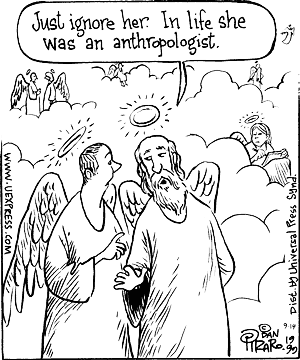Reading Jim’s posts about and from Emil Brunner [that blog link is now dead] has me again pondering how I write. Since beginning to blog about 4 years ago (initially anonymously) I have thought carefully and often about how I write, what perspective I take, voice, tone, and language. Dean Dad refers to an interesting post from Dr. Crazy, “Pseudonymity is not Anonymity, duh,” with the basic argument that a pseudonym has character, identity, and substance whereas anonymous is, by definition, lacking any distinctive, “without identity, being untraceable.”
Yet it was the force of Brunner, speaking about, for example, what it means to be a believer that has me considering in a deeper way how I write. Let me come at it from one more angle. I am regularly invited to speak at synagogues, as a non-Jew who specializes in early Jewish literature, about what did or did not make Jesus distinctive. One of the traits as presented in the Gospels that I think definitively sets Jesus apart from later representations of the rabbis is that he “spoke with authority.” That is, he did not seem to feel the need to present his statements as being derived from a predecessor.
Perhaps it is having grown up in a biblically literate home, where this view of Jesus’ authority is held up, or perhaps it has been my training as an academic to always cite sources, but I know that I often feel coy about directly stating my own views or thoughts in writing. This is true in most venues. In academic writing, of course, I do make assertions and come to my own conclusions, occasionally (one would hope) at odds with what other scholars have written, but never until a sufficient balustrade of reference and citation has been offered as support. On the blogs I have at times tended to be even more timid, for all the reasons we might reasonably consider: it is a semi-permanent record, avoiding confrontation, and, perhaps my most crippling fault of all, not wanting to be misunderstood. I don’t really mind conflict or contradiction so long as my position is accurately understood.
So I wonder if others wrestle with this as well. It is not a question of pseudonymity or anonymity, I use the name “Targuman” but I do not hide the fact that I am Christian Brady. It is a question of what pressures or constraints, internal or external, do we feel when we set down to write. Someone like Dr. Jim West, for example, seems to feel no such constraint. Jim Davila and Mark Goodacre have very stately academic blogs (although Mark now has a blog that comments on more personal matters as well). I tried to have the latter, but found that others did it better than I and cannot bring myself to follow the former. Of course, I wouldn’t say that I am not myself here on the blog, but I am certainly constantly aware that anything I post could be preserved and brought out at some later date.
I sometimes wonder if it isn’t a bit like the difference between preaching and lecturing. I am assiduous in the secular classroom to maintain a certain distance from texts, traditions, and beliefs. The only beliefs of mine that are relevant in that context are my academic convictions. But from the pulpit I preach what I believe to be the truth with what I pray is conviction. So what is the blog? Pulpit, classroom, water-cooler, or …?






17 thoughts on “How we write”
What a provocative piece, Chris. It’s going at the head of the April Carnival.
Thank you Jim. Very humbling. I hope that this can generate some discussion. I can’t imagine that I am alone in these musings.
I hear you completely. Everytime I write anything that I post on the blog, I always feel compelled to find resources to substantiate every claim.
Part of this is the way I approach an argument. I like to reduce questions from the other side. But the other part is that I have an almost self-abnegating sense in my writing. But I am not sure this is bad.
I was in B&N today and picked up Velvet Elvis. I could not bear it. I wanted to puke it was so poorly written. And selling like hotcakes. Could I write crap like that and make money? Absolutely. I think I am a persuasive enough writer to do that – I just need another tattoo and a goatee.
But there is a moral thing that drives me to write in a community. I really sense it to be a Christian duty to write not about me, but about ideas that shape faith and teach others about good ideas that shape faith. Maybe I have read too much Kierkegaard and that has colored my sense of authorship (where the reader and writer dialectic breaks down since God is the author to all of it).
But I do think that I suffer from being overly self-critical to think that anything that comes only from me generally sucks. that is the source of true writer’s block. You write, a lot, but none of it seems worth it.
Even when I preach I know the sources, I just don’t mention them.
Also, any novel ideas that I think I have I am convinced that they are nothing new.
I think that I have to be a better risk-taker and see what comes of it. I think that is why I started blogging in the first place – the pour out my brain in order to see if any of my thoughts are remotely interesting to anyone other than me. Still not sure about that yet either…
I too struggle with the content and focus of blogging. Should I take a personal viewpoint and write it as a “journal” for everyone to see. This approach is vulnerable and eye opening for those that know me, but does it do any good? Should I take my blog and offer it as content, much like a sermon? I’ve decided that my blog represents who I am and therefore I write my thoughts, disagreements and agreements in a way so that others can 1. grasp an idea of how I think 2. give others a new way to think.
As an aside, Drew mentioned that he read “velvit elvis” and he said “I wanted to puke it was so poorly written”. Without bringing divisiveness – this book has caused many people to think about Christianity and it has brought many people closer to Christ and approaching life with a Christian world view. Drew – you really can’t say much about this book and it’s poor literary content because … your not the one with a best selling book! The issue is, not the lack of writing skills a guy has, rather than the fact that he can connect with an audience. Unfortunately, acedemics rarely can do this.